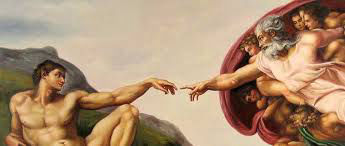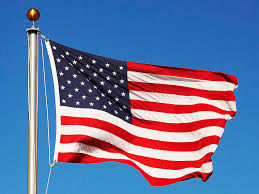Dear American Cousin,
Kaplan’s premise is interesting, albeit not novel. He is absolutely correct that “religion could not survive without culture.” We have thousands of years of proof, back to prehistoric times, when people practiced what we can only describe as "religious beliefs” while living a life totally devoid of anything that we could possibly describe as "culture.” Whether or not, as he states, “Judaism survived because it included a culture…” is something I can live with, as long as we don’t believe that that is the ONLY reason for the survival of Judaism. There are sooo many examples of the unbelievable resilience of man to survive that I cannot possibly ascribe it to ONE reason - religion - only. But that's okay, I have no trouble if someone wishes to hold on to that “central pillar,“ as it were. You are quite correct. My family home was devoid of religious practices and beliefs. But it was remarkably rich in YIDDISH culture.
As you know, the lingua franca in the home was 95% Yiddish. Yiddish music played on the record player. Yiddish newspapers came into the home weekly, as did Yiddish journals and an endless stream of books. We attended Yiddish concerts and plays. For two years, while I was in grades 7 and 8, I attended a Yiddish ‘shule” (pronounced “shu-lah) 3 times a week, after school and on Sundays. I could, up to that age, speak and understand Yiddish 95%, but could not read it or write it. And so I learned it in those two years, and even performed in a number of Yiddish plays put on by we shule students. I was acutely aware, from perhaps age 10, that my parents were concerned about the dearth of Jewish and Yiddish culture in the city where we lived. There was a small Jewish population, and synagogue attendance was assumed to be the only path. Not for my parents. So at my age 10 we moved to Toronto, in my parents' hopes that the environment would be far richer in the Jewish/Yiddish way. For business reasons we had to return to the city where I grew up in less than a year. I was also aware that my parents were not thrilled when my brother, 5 years older than me, dated non-Jewish girls. I was equally aware that they were less than thrilled, but did not ask my brother not to marry his non-Jewish wife, but it was clear that they were not happy, and had long-term concerns.
I had no strong feelings about whom I dated or might eventually marry. I was very, very secure with my identity as a Jew, and very comfortable in my skin in that respect. But I did know, most definitely, that the person would have to be pretty much free of religious faith, and of equal importance, be on the liberal side in their political beliefs. I got blind lucky with E!! I could not help but be acutely aware of the impact that the Holocaust had on my dad. I had by now, all too often, heard the phrases muttered again and again, in many places, “God wills it,” and “The Almighty and all-seeing and compassionate God,” and “Merciful God…” Huh? I was stumped. If there IS a God, and he is so omniscient and almighty and compassionate and then how the hell can there be a Holocaust? Of course at that age who knows who they are, so I could not possibly have understood that somehow I was already, by nature I guess, strongly predisposed to be the hard-nosed, pragmatic kind of person whose view of life demands proofs. Any kind of God-belief/faith was simply not possible. With all the horror of the Shoah, in and of itself, I was forced, literally forced, to turn my back on any form of religious belief. No matter where I looked, they ALL had as their essence that central core of a belief/faith in some kind(?) of a superpower/being/force/whatever you wish to call it. So, bottom line, …no belief, no faith, and no religious observances. However, out of respect for history, we gather as a family at holiday Jewish times, and acknowledge events of the past together. It is the only rational position I can understand, certainly for myself.



